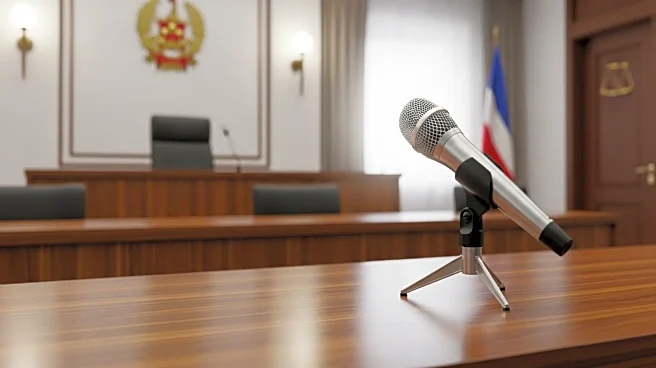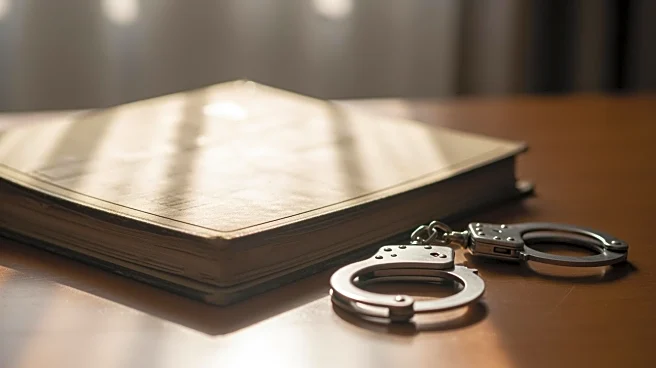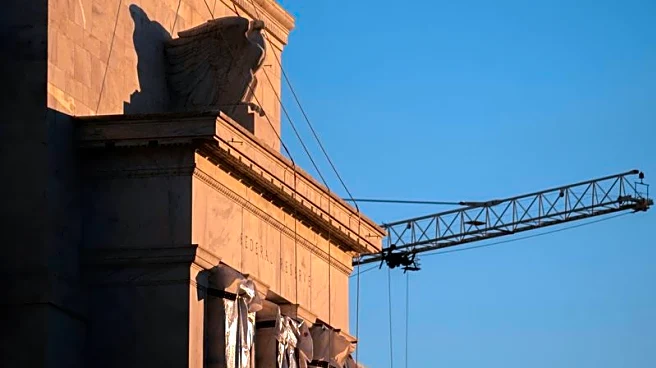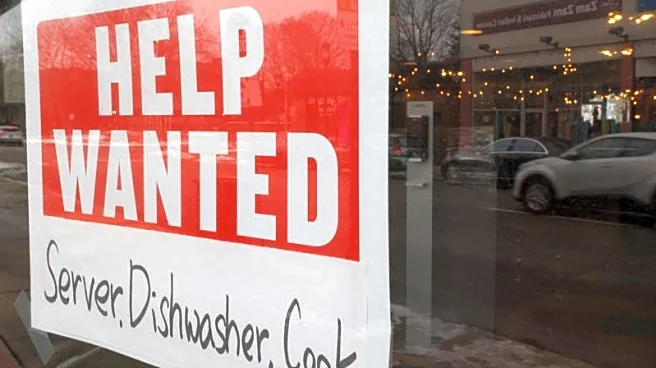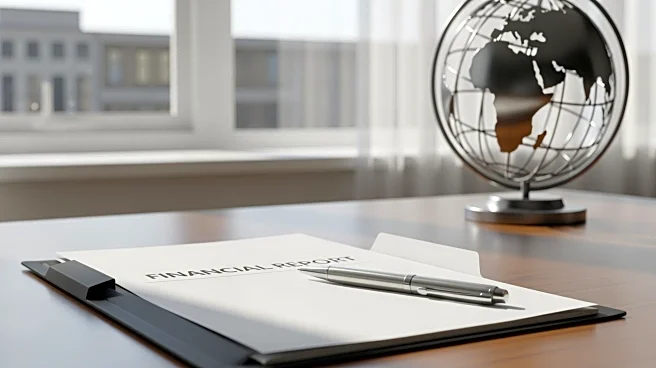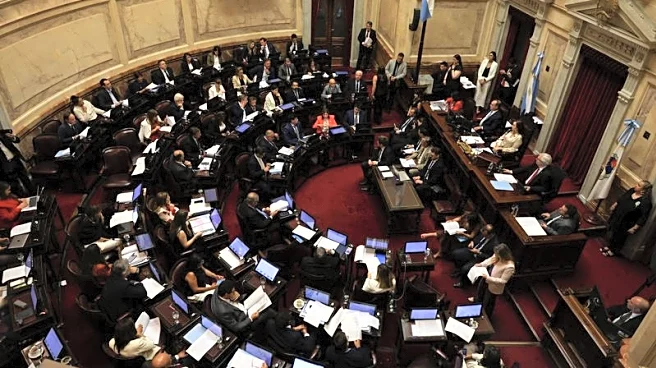What's Happening?
A British court has dismissed a terrorism charge against Irish rapper Liam Ó hAnnaidh, known by his stage name Mo Chara, due to a missed legal deadline. The charge was related to an incident where Ó hAnnaidh allegedly displayed a Hezbollah flag during a concert at London's O2 Forum on November 21, 2023. Prosecutors claimed this act suggested support for a proscribed terrorist organization under UK law. The charge was filed in May following a viral video of the performance reviewed by London's Counter Terrorism Command. However, the judge ruled that the indictment was filed after the six-month statutory limit for such offenses, rendering the charge unlawful. Kneecap's manager, Daniel Lambert, celebrated the decision, stating that political policing had failed and that Kneecap was on the right side of history.
Why It's Important?
The dismissal of the charge against Liam Ó hAnnaidh highlights the importance of adhering to legal procedures and deadlines in the judicial system. This case has drawn attention due to Kneecap's controversial performances, which have included anti-Israel messages. The outcome may influence how similar cases are handled in the future, particularly those involving political expressions and alleged support for proscribed organizations. It also underscores the tension between artistic expression and legal boundaries, especially in politically charged contexts. The decision may embolden artists and groups who feel their political messages are being unfairly targeted by authorities.
What's Next?
Following the court's decision, Kneecap may continue to perform and express their political views without the immediate threat of legal repercussions. However, the group may still face scrutiny from authorities and public debate over their controversial messages. The case could prompt discussions on the balance between freedom of expression and national security concerns, potentially influencing future legislation or legal interpretations regarding similar incidents. Stakeholders such as civil rights groups and political commentators may weigh in on the implications of the ruling.
Beyond the Headlines
The case raises questions about the role of political expression in art and the extent to which artists can be held accountable for their messages. It also highlights the challenges in prosecuting cases that involve symbolic acts, such as displaying flags, which can be interpreted in various ways. The legal outcome may encourage other artists to push boundaries in their performances, knowing that procedural errors can lead to dismissals. Additionally, it may lead to increased scrutiny of how authorities handle cases involving political symbols and messages.
